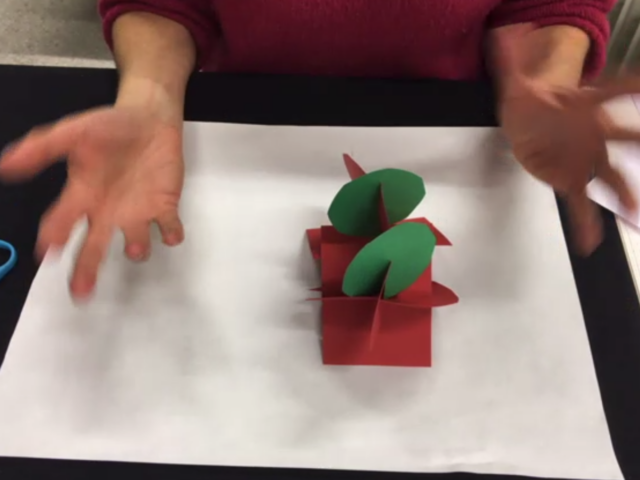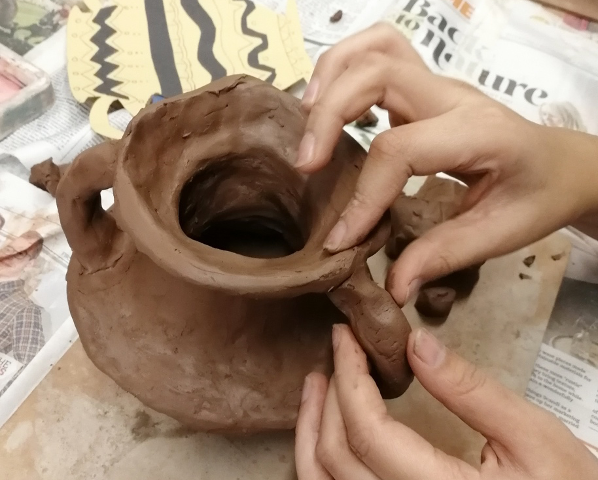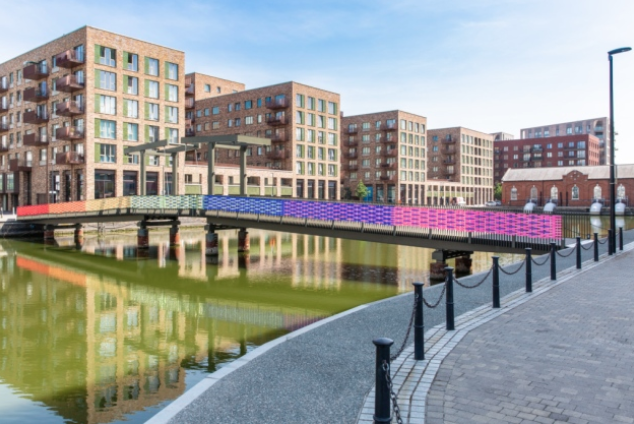The Space Between | Joseph Griffiths and the Exbury Egg
The Space Between is an exploration of words, active listening and conversation taking place over a period of a year.
The project is run in conjunction with fellow artist Stephen Turner and his Exbury Egg. Also known as ‘The Eggman’, Stephen has brought his Exbury Egg to Thamesmead as part of his international project, ‘Natura Prima?’ in partnership with Bow Arts and the Bevilacqua La Masa Foundation (Venice, Italy). The Exbury Egg, located on the grounds of the Lakeside Centre, will act as a conversational tool and meeting space for artists and the local community.
The collaboration between Stephen and Joseph will see Joseph facilitate a series of discussions around themes that align both artists’ practices, including those of home, arrival, disconnect and the environment. All are welcome to these discussions – details of the dates / themes are below.
Joseph will also be continuing his exploration of written text or words as material as part of the project and will regularly share work here.
Egg Sessions
Joseph’s participatory group sessions are not planned beyond the proposed theme pre-set as a suggested point of departure. They have been initiated as a way to develop and explore group conversation and active listening within the unique environment of Stephen’s Exbury Egg. Everyone is welcome.
As your way of contribution, please bring along an idea, a text, a thought, an object, or simply an inclination or feeling that you think may relate to the proposed discussion theme.
Booking is essential. For further details and to book places please see the eventbrite page.
1. Where is There?
Thursday 21st November 2019
18.30-21.30
The first session will explore ‘Where is there?’, exploring unattainable spaces and objects.
The Object that is unattainable is Hypothetical as it can not be touched. The Place that is unattainable is Hypothetical as it cannot be inhabited. Neither can be wholly experienced. They exist primarily as an idea. Certain landscapes lend themselves to this way of seeing. One of the most celebrated is Venice, another, as I have recently discovered, is Thamesmead. A commonality in both landscapes is water – which in spatial terms – leads to physically isolated areas of land which can often be inhabited through imagination alone. This first session explores these unattainable spaces/objects, all of the questions that they raise and the ways in which they may be interpreted from beyond their remit.
2. Productivity/Output within the Art Practice
Thursday 12th December 2019
18.30-21.30
The second session will look at the role of the artist in the current context of the world’s environmental and consumerist challenges.
In the context of consumerism and the environmental emergency that is currently unfolding around us, Joseph has begun to heavily question the role of production and the value of so called “productivity” within art practice and life in more general terms. With so much stuff already in the world and the negative impact that the creation and dissemination of all of this stuff is causing – Joseph proposes that we ask why, as artists, would we want to contribute further to that? How can we address these issues with sensitivity whilst continuing our lives? What is the role of the artist, if any, to address and challenge these issues through our practices?
Thursday 16th January 2020
18.30-21.30
3. Hyper-Object: The Environment – What’s the point?
A global Environmental Emergency and the possibility of Human Extinction are evidently underway. These interrelated issues are now gaining the greater media attention that they deserve and that are required if we are to halt them through movements such as Extinction Rebellion and the work of Climate Activists such as Greta Thunberg. Joseph proposes that we use this session to discuss how we can individually and collectively face this issue of such great scale and the effects that this looming crisis is having on our day to day experiences of our planet, our lives and our health. Joseph would like to consider how we may use grief as a tool to actively combat the collective feeling of hopelessness that many of us are feeling around this issue.
Joseph borrows the term ‘hyper-object’ from the academic Timothy Morton to whom the phrase and overarching concept is widely accredited. Morton uses the term to explain objects so massively distributed in time and space that they transcend localisation and in turn, arguably evade recognition altogether. He discusses climate change in this context in his book “Humankind: Solidarity with Non-Human People”.
Thursday 13th February 2020
18.30-21.30
4. Home – The importance of Stability for a sustained Art Practice
Joseph has spent what he considers to be an unreasonable amount of time over the past 10 years attempting to balance the time-space-money equation that any person requires for a happy and healthy existence. Everybody needs time, space and money to thrive. An Art Practice requires further space and often additional money for materials to sustain it – more so that most occupations. This delicate equation is often further exacerbated by the largely noncommercial nature of art practice which often leads to practitioners having to work the equivalent of full time in secondary fields as a way to support their continued development.
This has always been the case. However, graduating from a Fine Art course in 2011, Joseph was delivered into what was about to become an environment of extreme austerity and 100% governmental cuts to the arts with a rise in unstable employment and housing to boot. Joseph proposes to use this session as a way to question the effects that the housing and employment crises in the UK have had on art practices of those at the start of their careers, how this may go on to affect the representation of those on lower incomes and the effect this might have on arts and culture in the long term. Furthermore, Joseph proposes that we ask, are these issues in themselves finding their way into the broader vernacular within the visual arts? And if so, is it authentic?
You may wish to use this discussion to refer to your own experiences or that of others. Both approaches will be welcomed.
Thursday 12th March 2020
18.30-21.30
5. Disconnect
Joseph will use this session to consider the effects of technology, austerity, the erosion of community and environmental catastrophe on our mental health and general well-being, with a focus on increasing loneliness and inability to connect to each other on a human level.
Saturday 11th April 2020
12.00-16.00
6. Plants
This session is for anybody who marvels at the wonders of plants and wishes to share this passion. Joseph proposes a discussion around their function – ecologically and socially – as well as their representation. In the spirit of this series of discussions, if you are able, please bring some plant cuttings to show the group and share as part of the session.
There will be a walk in the local area in advance of this discussion.
Saturday 9th May 2020
12.00-16.00
7. Approach to Materiality: Gathering
This session follows on from “Productivity/Output within the Art Practice” and will be a discussion around gathering, resourcefulness and referencing your immediate surroundings within Art Practice.
Where is that line between something being an artwork or not. Can the act of gathering be art practice in itself? Is it the re-presentation of gathered items that constitutes an artwork?
You may wish to use this discussion to refer to your own work or that of others. Both approaches will be welcomed.
There will be a walk in the local area in advance of this discussion.
Practical Considerations
Each sitting will consist of 12 people and so it is really important that you return your ticket if you are no longer able to attend so that each session remains a full group.
3 hours are allowed for evening sessions and 4 hours for daytime sessions, which also include a walking tour of the area. However, end times are not fixed and to some extent will depend upon the outcomes of the session.
Snacks and drinks will be provided. As some events take place over a meal time, please feel free to bring food (preferable vegetarian friendly) to share with the group. However, do not let this deter you from booking if you are unable to do so!
We will spend the sessions inside the Exbury Egg. There will be some chairs but some people may need to sit on cushions on the floor. The space is quite compact and access is via a run steps. If you have any access requirements or concerns about the space, please do not hesitate to get in touch. Please note that the Exbury Egg is located on the grounds of a studio complex with accessible toilets onsite and spaces to stretch your legs / get a change of scenery if required.
About
Joseph Griffiths is an artist and writer living and working in London, UK.
Born in Newport, S. Wales: 1987
Studied at:
University of Wales Cardiff: 2005 – 2006
The Slade School of Fine Art: 2007 – 2011
General Practice
Within his practice, Joseph broadly works between the binary oppositions of Flatness and Objecthood, the Literal and the Metaphoric, the Hypothetical and the Actual.
With a focus on resourcefulness, Joseph approaches materiality through gathering, ordering and a process of reduction of physical and non-physical matter which he draws from his everyday environment. In doing so, Joseph explores the ideas of Equivalence and the Arbitrary. Furthermore, he has also begun to question the function of visual Language and its limitations in an attempt to emphasise the significance of an artistic Approach over a physical Output. His work can take the form of arranged objects, text, surface or simply exist as a conversation.
The project is supported by Bow Arts and Arts Council England.


